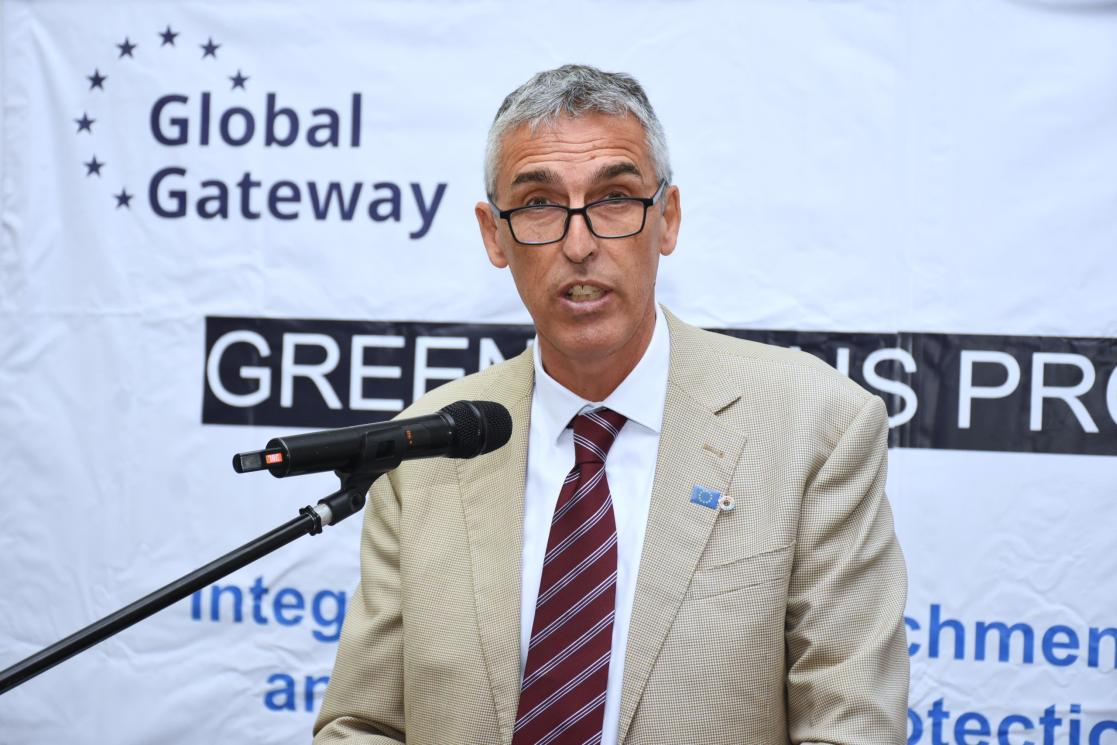The Zambian Ministry of Water Development and Sanitation (MWDS), with support from the European Union’s Green Nexus Programme, has today launched the country’s first ever National Rainwater Harvesting Strategy, a significant step towards a more water secure Zambia. The Green Nexus Programme is part of the EU’s Global Gateway Strategy which aims to contribute towards a sustainable and resilient future for Zambia.
Following the declaration of the drought during the 2023/2024 rainy season as a national emergency by the Republican President, His Excellency, Mr. Hakainde Hichilema, the Ministry of Water Development and Sanitation (MWDS) initiated the development of Zambia’s first National Rainwater Harvesting Strategy and Implementation Plan aimed at addressing a major challenge of the water sector – the lack of water security, which has profound implications for both food and energy security in Zambia.
“The launch of the National Rainwater Harvesting Strategy and its Implementation Plan will enhance overall water security that will benefit various water users and build resilience against climate shocks in Zambia as a whole,” stated the Minister of Water Development and Sanitation, Hon. Eng. Collins Nzovu, MP. “Specifically, the Strategy will establish water harvesting mechanisms to enable irrigation development that will stimulate agricultural production.”
Rainwater harvesting is a sustainable and innovative solution for capturing and storing water from rainfall, which can then be used for agriculture, sanitation, industrial use and even for drinking. Further, rainwater harvesting enhances resilience to climate variability and ensures that communities have access to water even during droughts or times of irregular rainfall.
“Rainwater harvesting presents a unique opportunity towards building climate resilience of ecosystems, food security and sustainable livelihoods for people in Zambia,” stated Claudio Bacigalupi, Head of Cooperation at the European Union Delegation to Zambia and COMESA. “As Team Europe we come together to promote and facilitate partnerships and investments in green recovery and sustainable growth through sustainable land use and natural resource management across various sectors in line with Zambia’s development agenda.”

The reliance on rain-fed agriculture especially for the staple crop, maize, as well as hydro power highlights the importance of rainwater for the nation’s food and energy security. Therefore, rainwater harvesting is a sustainable solution to Zambia’s declining water stock and could sustain livelihoods, mitigate against climate change variations, and enhance water, food and energy security.
The effective implementation of the Strategy will enhance integrated management and development of rainwater harvesting infrastructure for socio-economic development. Particularly, it will improve food security, mitigate the effects of recurring droughts in Zambia, and strengthen the country’s resilience to climate change impacts.
As part of the Green Nexus Programme, the European Union, the German and Swedish Governments co-funded the Integrated Water Catchment Management and Landscape Protection in Zambia (AWARE 2.0) project. The project is contributing to the implementation of the Strategy through the scaling up of low-cost, robust, and replicable nature-based solutions to improve water resource management and enhance water security in the Lower Kafue Sub-Catchment.